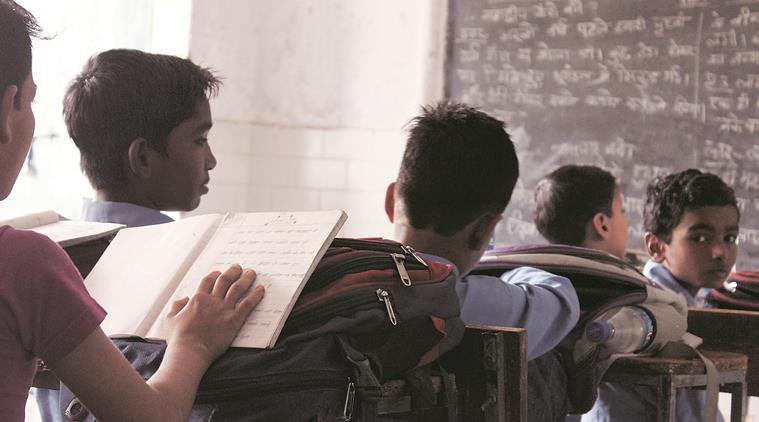
With thousands of new children joining Delhi government schools on Monday, the academic year commenced for the 2019-2020 session in which a number of initiatives will be launched.
The total number of students enrolled in government schools in the previous academic year was 14,93,742. New admissions will continue to take place, with the process yet to be completed in Rajkiya Pratibha Vikas Vidyalayas and Schools of Excellence, and with students awaiting their board examination results.
The primary changes which have been lined up for the year are the introduction of the new entrepreneurship curriculum and modifications in the happiness curriculum that was started the previous year.
The entrepreneurship curriculum was launched as a pilot project for classes IX, X and XII in 24 schools on Monday and is scheduled to be rolled out in all government schools for classes IX to XII in July. With the stated aim of “developing entrepreneurial mindset”, 40 minutes of each school day will be dedicated to these classes and students will be provided Rs 1,000 as “seed money” to experiment.
The happiness curriculum is also up for modification, with the creation of new teaching handbooks currently in the works. Prior to this, the curriculum was divided into four levels – nursery to Class II; III-IV; V-VI; and VII-VIII. Now, work is ongoing to develop separate teaching programmes of different levels for each class between nursery and class VIII.
According to a senior official in the SCERT involved in the curriculum development process, the process has slowed due to the upcoming Lok Sabha elections and will be launched in July.
Also scheduled to begin in July are “Constitution classes” for classes VI-XII in all Delhi schools. This is a 10-month long programme in which students will be made to engage with “Constitutional values” during one class each week.
Apart from this, another major incentive in the academic year will be the introduction of monetary rewards for good academic performance, with a new scheme promising Rs 2,500 for students of classes VI to XII who perform well in the exams.
Also planned is the opening of “Ambedkar Pathshalas” — centres for free after-class remedial teaching — in 100 government schools, in a tie-up between the education and social welfare departments.